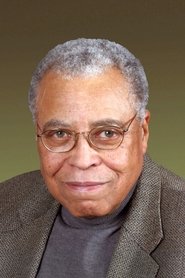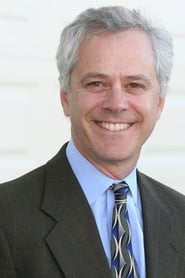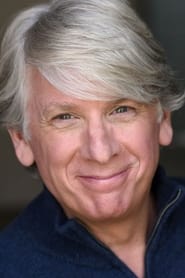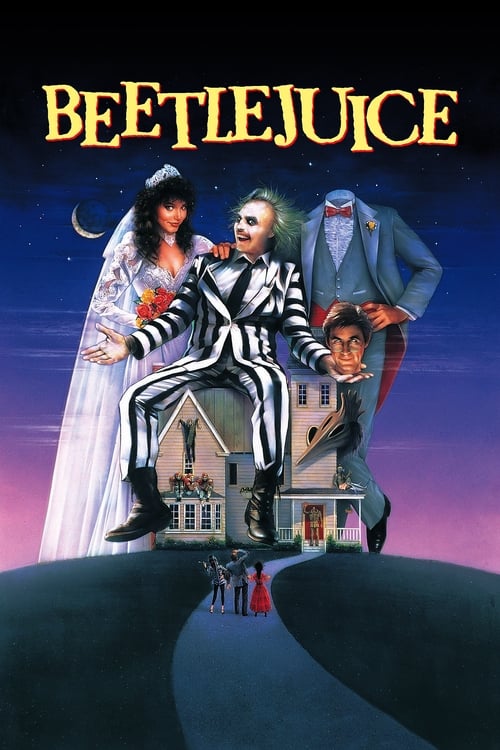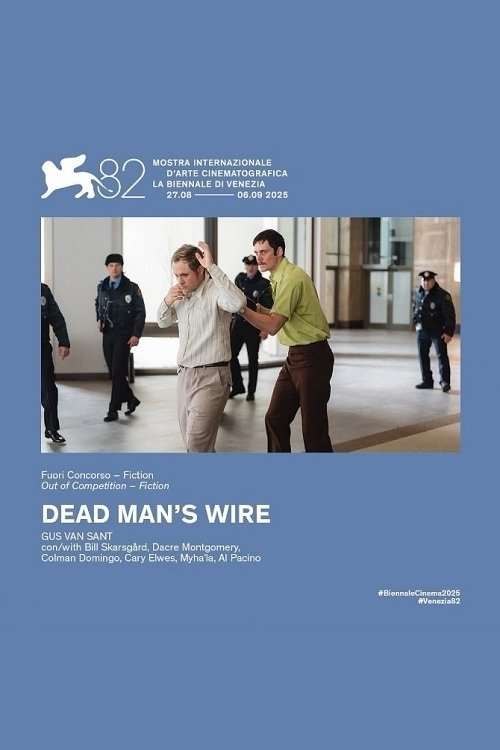
Ask Your Own Question
What is the plot?
Soul Man (1986): Complete Plot Narrative
Mark Watson sits in his Southern California home, his hands trembling with anticipation as he tears open the thick envelope bearing Harvard's crimson seal. Inside is his acceptance letter to Harvard Law School--a dream realized, a future secured. His best friend Gordon Bloomfield has also been accepted, and the two young men envision themselves becoming successful lawyers, their paths to wealth and prestige now seemingly guaranteed. Mark is the pampered son of a wealthy psychiatrist, accustomed to privilege and comfort, never having wanted for anything in his life. The world appears to be opening before him, ready to hand him everything he desires.
But then reality crashes down. Mark's father, influenced by his own neurotic psychiatrist, decides to focus on his own happiness rather than funding his son's education. The message is clear and devastating: Mark must pay his own way through Harvard Law School. The rejection stings deeply, and Mark finds himself in an unfamiliar position--denied. He frantically searches for scholarships, desperately hoping to find a way to maintain his trajectory toward success without having to work or sacrifice his comfortable lifestyle.
Then he sees it. A full-ride scholarship exclusively for African American students. It is the only viable option Mark can find, and in that moment, a dangerous idea takes root in his mind. He could apply. He could win it. All he needs to do is look the part. The audacity of the plan is staggering, but Mark's desperation overrides any moral hesitation. He obtains a bottle of experimental tanning pills, far more potent than the recommended dosage, and begins taking them obsessively. He also gets a Jheri curl, a popular hairstyle among Black men in the 1980s. Within days, his skin darkens dramatically, and when he looks in the mirror, he sees not himself, but a new identity--a Black man ready to deceive the world.
Mark submits his fraudulent application to Harvard's scholarship committee, presenting himself as a young Black man seeking educational opportunity. The ruse works perfectly. The committee is convinced, and Mark receives the full scholarship. He has successfully stolen an opportunity that belonged to someone else, though he doesn't yet understand the weight of that theft. Excited and relieved, Mark prepares to leave California for Boston, ready to begin his new life at Harvard Law School.
Before departing, Mark privately reveals his charade to Gordon during a jog through their neighborhood. Gordon's reaction is one of utter astonishment--his best friend has literally transformed himself into someone else. The shock is so profound that Gordon loses his footing and tumbles off a pier into the ocean, emerging soaked and incredulous. Despite the absurdity of the situation, Gordon agrees to keep Mark's secret. The two friends will be roommates at Harvard, and Gordon will be complicit in the deception, at least for now.
Mark and Gordon arrive in Boston and begin searching for an apartment near Harvard. They find one available from a landlord who is obviously and unapologetically bigoted. The man's racism is palpable, but he agrees to rent to them--or rather, to what he perceives as two Black men. Mark and Gordon move in, unaware of just how hostile their living situation will become.
As Mark begins his classes at Harvard Law School, he encounters Professor Banks, a Black law professor who will become a central figure in his journey. Banks is demanding and holds his students to the highest standards, but there is something else in his gaze when he looks at Mark--a penetrating awareness, as if Banks can see through the facade. Mark finds himself working harder in Banks's class than in any other, driven by a combination of fear and respect.
It is in one of his law classes that Mark meets Sarah Walker, a young Black woman who is also a first-year student. She is intelligent, beautiful, and struggling. Unlike Mark, who has the luxury of a full scholarship, Sarah is working as a waitress to support herself and her young son, George. She is managing an impossible balance--attending classes, working nights, and being a single mother. Mark is immediately drawn to her, and he begins flirting with her casually, treating her as just another conquest in his privileged existence.
As Mark spends more time with Sarah, something unexpected happens. His feelings deepen. He genuinely falls in love with her, and she begins to reciprocate his affection. But then, in a casual conversation, Sarah mentions something that makes Mark's blood run cold. She tells him that she was in the running for the very scholarship he received, but lost it at the last minute to someone else. She doesn't know that "someone else" is sitting right beside her. Mark realizes that his fraud has directly harmed this woman he loves, forcing her into a life of exhausting work and constant struggle while he enjoys the full benefits of an education paid for by stolen opportunity.
As Mark continues to live as a Black man, he begins to experience the realities of racism firsthand--realities he had never truly understood before. One day, while driving casually through Boston, a police officer begins following him. When another car suddenly opens its door in front of him, Mark swerves to avoid it. The police officer immediately pulls him over, claiming Mark changed lanes without signaling. But the traffic violation is merely a pretext. The officer is hostile and aggressive, and when Mark questions the stop, he is arrested for being surly to an officer. Mark spends a night in jail, surrounded by uneducated, angry men who take out their frustrations about a sports loss on Black athletes--and on Mark, whom they assault. He misses an important law exam, and the consequences ripple through his academic life.
In another incident, Mark is jailed with locals who are venting their anger about a team's loss to Black athletes. They assault him, and Mark experiences visceral, physical racism in a way he never has before. The violence is real, the hatred is real, and Mark begins to understand that the racism he is experiencing is not merely social awkwardness or minor inconvenience--it is dangerous and systemic.
Back at the apartment, Mark faces a different kind of harassment. Whitney, the landlord's daughter, becomes sexually fixated on him. She sees Mark not as a person but as an exotic thrill, a chance to explore what she perceives as the "exotic" nature of Black sexuality. She pursues him relentlessly, appearing at his apartment partially undressed and making her intentions clear. Mark refuses her advances, knowing that her father is deeply racist and that any relationship with Whitney would only complicate his already precarious situation. He tries to get her to leave, but she is persistent and aggressive in her own way.
Whitney's father is even more problematic. He is a virulently racist man who harbors grotesque stereotypes about Black men. In his mind, he imagines Mark as a pimp, a predator, a jungle warrior--all the racist fantasies that have plagued Black men throughout American history. When he discovers that Mark has been spending time with his daughter, he becomes enraged. He confronts Mark at the apartment and, without provocation, hits him hard in the stomach. The blow is violent and deliberate, a physical manifestation of the racism that Mark has been experiencing in more subtle forms throughout his time in Boston.
The building superintendent, witnessing the altercation and sharing the landlord's racist views, happily serves Mark and Gordon eviction papers. They are no longer welcome in the building. Mark and Gordon must find a new place to live, and the humiliation of being evicted because of racism--even though Mark is not actually Black--begins to weigh heavily on Mark's conscience.
Meanwhile, Mark's parents decide to make a surprise visit to Boston to see how their son is adjusting to Harvard. They arrive at the apartment unannounced, expecting to see their son. But Mark is not there--or rather, the person they see is not the son they recognize. Mark frantically tries to explain, but before he can, Sarah also arrives at the apartment. The situation becomes chaotic and impossible to manage. Mark's parents are shocked and confused. Sarah is there, and Mark realizes he can no longer maintain the deception. In that moment of crisis, with his parents staring at him in confusion and Sarah looking at him with dawning realization, Mark makes a decision. He reveals the truth. He tells everyone that he is not Black. He is white. He has been lying the entire time.
The revelation is met with shock and anger. Sarah is furious--not just because Mark lied to her, but because she understands now that he stole her scholarship, that his deception directly caused her suffering. His parents are stunned and disappointed. Whitney's father, who has also appeared at the apartment, is vindicated in his racist assumptions, though for entirely wrong reasons. The superintendent calls Whitney's father to inform him of Mark's true identity, and Whitney's father arrives to physically confront Mark again, hitting him once more before being led away.
In the aftermath of the revelation, Mark and Gordon work together to plan a response. They know that Mark must face the consequences of his actions. The next day, the student judiciary convenes to hear Mark's case. This is the formal mechanism by which Harvard will determine what to do about Mark's fraud--his theft of a scholarship meant for a Black student, his lies to his classmates, his deception of the university itself.
Gordon goes before the judiciary first, and he delivers an impassioned defense of his best friend. He acknowledges that Mark committed fraud, that Mark cheated Sarah out of her rightful scholarship, but he emphasizes that Mark feels genuine remorse. Gordon speaks to the growth Mark has experienced, the lessons he has learned about racism and privilege, and the depth of Mark's regret. It is a powerful speech, and it sets the stage for Mark's own testimony.
Mark then enters the room and reveals himself to the council. The moment is surreal--Mark, who has spent months presenting himself as Black, now stands before the judiciary as his true self, white. The reaction in the room is immediate and telling. Everyone mutters, "no wonder," as if Mark's whiteness suddenly explains everything--his privilege, his audacity, his ability to simply take what he wanted. The comment is both a condemnation and an acknowledgment of the systemic racism that made Mark's deception possible in the first place.
Professor Banks is present, and he is not amused. His expression is stern, his disappointment palpable. Mark has betrayed not just the university but the trust of a professor who challenged him to think deeply about law and ethics.
Mark addresses the council directly. He does not make excuses. He does not try to minimize what he has done. Instead, he takes full responsibility. He tells the council that he plans to apologize publicly and in writing to the university. He will allow his future wages to be garnished to repay the scholarship money he fraudulently received. Most importantly, he will work to establish a new scholarship in Sarah's name, ensuring that his theft ultimately results in an opportunity for another deserving student.
After the hearing, Mark meets privately with Professor Banks in his office. This conversation is the emotional and moral heart of the film's resolution. Banks challenges Mark's understanding of what he has learned. Mark claims to have gained insight into the Black experience, to have understood racism through his months of living as a Black man. But Banks cuts through this claim with devastating clarity. He tells Mark that Mark still cannot truly understand what it means to be Black because Mark could change back to being white at any time. Mark had the privilege of removing his Blackness whenever he chose. Real Black people do not have that option. They live with racism every single day, with no escape, no ability to simply wash it away or take off a costume. Mark's experience, while educational, was fundamentally different because it was temporary and voluntary.
The realization hits Mark hard. He understands now that his deception, while wrong, also revealed the limits of his empathy and understanding. He can never truly know what it means to be Black in America because he has never had to live with the permanent reality of that identity. His months of experiencing racism were intense but ultimately escapable. For Sarah and for Professor Banks and for millions of other Black Americans, racism is inescapable. It is the permanent condition of their lives.
The university decides not to press criminal charges against Mark. This decision reflects both mercy and pragmatism--prosecuting Mark would create a public scandal that Harvard might prefer to avoid. But Mark's punishment is real nonetheless. He must repay the scholarship money. He must establish a scholarship in Sarah's name. He must live with the knowledge of what he has done and the limitations of his understanding.
As for Sarah, she is angry. Her anger is justified and profound. Mark stole from her, lied to her, and made her fall in love with him under false pretenses. The film suggests that some forgiveness may eventually be possible, but it is not immediate. Sarah's anger stands as a testament to the real harm that Mark's deception caused.
The film ends with Mark and Gordon working together to resolve the fallout from Mark's revelation. They are no longer living in the apartment--they have been evicted. Mark is no longer pretending to be Black--his deception has been exposed. But Mark is also no longer the same person he was at the beginning of the film. He has learned something about privilege, about racism, about the ethics of deception, and about the limits of his own understanding. Whether that learning is sufficient redemption is left somewhat ambiguous, but the film suggests that Mark's willingness to make amends--to repay the money, to establish the scholarship, to apologize publicly--represents a genuine attempt at restitution.
The story of Mark Watson is ultimately a story about privilege confronting reality, about a young man who thought he could simply put on Blackness like a costume and take it off whenever he chose. It is a story about the real consequences of fraud and deception, about the ways that individual actions harm real people with real struggles. And it is a story about the possibility of growth, even when that growth comes too late to prevent harm, and even when that growth is incomplete and imperfect. Mark Watson will never fully understand what it means to be Black in America, but he has learned something about what it means to be white--to have the privilege to make choices that others cannot make, to have the ability to escape consequences that others cannot escape, and to have a responsibility to use that privilege with awareness and care.
More Movies Like This
Browse All Movies →What is the ending?
In the ending of "Soul Man," the protagonist, Mark Watson, reveals his true identity as a white man after having pretended to be African American to secure a scholarship. This revelation leads to a confrontation with his peers and a moment of self-reflection. Ultimately, Mark learns valuable lessons about race, privilege, and identity, and he seeks to make amends for his actions.
As the film approaches its conclusion, Mark Watson, played by C. Thomas Howell, finds himself in a precarious situation. After successfully navigating his life as a black man to gain access to a prestigious law school scholarship, the truth about his deception begins to unravel. The climax occurs during a pivotal moment in a classroom setting, where Mark's professor, played by James Earl Jones, challenges him on his understanding of the black experience. The tension in the room is palpable as Mark struggles to maintain his facade.
In a moment of desperation, Mark decides to come clean. He stands up in front of his classmates and admits that he is not who he has pretended to be. The room falls silent, and the shock is evident on the faces of his peers. Mark explains that he had taken a pill that allowed him to appear black, a decision driven by his desire to secure the scholarship. The emotional weight of his confession hangs heavily in the air, and he faces the anger and disappointment of those he deceived, particularly his friend and love interest, Sarah, played by Rae Dawn Chong.
As the fallout from his revelation unfolds, Mark grapples with feelings of shame and guilt. He realizes the depth of the issues surrounding race and identity that he had previously overlooked. His classmates express their outrage, and Mark is left to confront the consequences of his actions. The professor, however, offers a moment of understanding, reminding Mark that the journey toward understanding race and privilege is complex and ongoing.
In the final scenes, Mark seeks redemption. He approaches Sarah, who is hurt and confused by his betrayal. He expresses his sincere regret and acknowledges the pain he has caused. Their conversation is charged with emotion, as Sarah grapples with her feelings of betrayal but also recognizes Mark's growth and willingness to learn from his mistakes. The two share a moment of connection, hinting at the possibility of reconciliation.
The film concludes with Mark reflecting on his experiences. He has learned valuable lessons about empathy, understanding, and the importance of authenticity. The final shot shows him walking away, a changed man, ready to face the world with a new perspective on race and identity. The fate of Mark is one of growth and self-awareness, while Sarah is left to decide how to move forward after the betrayal. The film ends on a note of hope, suggesting that understanding and change are possible, even in the face of deep-seated societal issues.
Is there a post-credit scene?
The movie "Soul Man," produced in 1986, does not have a post-credit scene. The film concludes with its main storyline wrapped up, focusing on the character Mark Watson, played by C. Thomas Howell, who learns valuable lessons about race, identity, and empathy throughout his journey. After the climax, where Mark's deception is revealed, the film ends on a note of reconciliation and understanding, but there are no additional scenes or content after the credits roll.
What motivates Mark Watson to pose as a Black man in Soul Man?
Mark Watson, a wealthy white student, is motivated by his desire to secure a scholarship for Black students to attend Harvard Law School. He learns that a prestigious scholarship is available specifically for Black applicants, and in a moment of desperation, he decides to use a tanning pill to darken his skin and pass as Black in order to qualify.
How does Mark's deception affect his relationships with his friends and peers?
Mark's deception creates a complex web of relationships. Initially, his friends are unaware of his true identity, and he experiences a sense of camaraderie with his Black classmates. However, as the truth begins to unravel, he faces backlash and betrayal from those who feel deceived, particularly from his love interest, who feels misled and hurt by his actions.
What challenges does Mark face while attending Harvard Law School as a Black man?
While attending Harvard Law School, Mark faces numerous challenges, including racial prejudice and discrimination from both students and faculty. He struggles to navigate the academic environment while maintaining his facade, and he experiences the harsh realities of being judged based on his race, which leads to moments of self-reflection and growth.
How does Mark's character evolve throughout the film?
Mark's character evolves significantly throughout the film. Initially, he is self-centered and oblivious to the struggles faced by Black individuals. However, as he immerses himself in the Black community and experiences the challenges of racism firsthand, he begins to understand the importance of identity, empathy, and the consequences of his actions, leading to a deeper sense of responsibility and awareness.
What role does the character of Sarah play in Mark's journey?
Sarah, a fellow student and Mark's love interest, plays a crucial role in his journey. She initially supports him, unaware of his deception, but as she discovers the truth, she feels betrayed. Her character challenges Mark to confront his actions and the implications of his choices, ultimately pushing him to seek redemption and understand the impact of his privilege.
Is this family friendly?
"Soul Man," produced in 1986, contains several elements that may be considered objectionable or upsetting for children or sensitive viewers. Here are some aspects to be aware of:
-
Racial Themes: The film deals with issues of race and identity, including the protagonist's decision to impersonate a Black man to gain access to a scholarship. This premise can be sensitive and may provoke discussions about race relations.
-
Stereotypes: The film includes various racial stereotypes and caricatures that may be offensive or uncomfortable for some viewers.
-
Language: There is the use of profanity and racial slurs throughout the film, which may not be suitable for younger audiences.
-
Sexual Content: The film features scenes with sexual innuendos and situations that may be inappropriate for children.
-
Drug References: There are references to drug use, which could be concerning for younger viewers.
-
Emotional Conflict: The protagonist experiences significant internal conflict and moral dilemmas, which may be distressing for some viewers, particularly children who may not fully grasp the complexities of the themes presented.
These elements contribute to a film that may not be considered family-friendly for all audiences.






